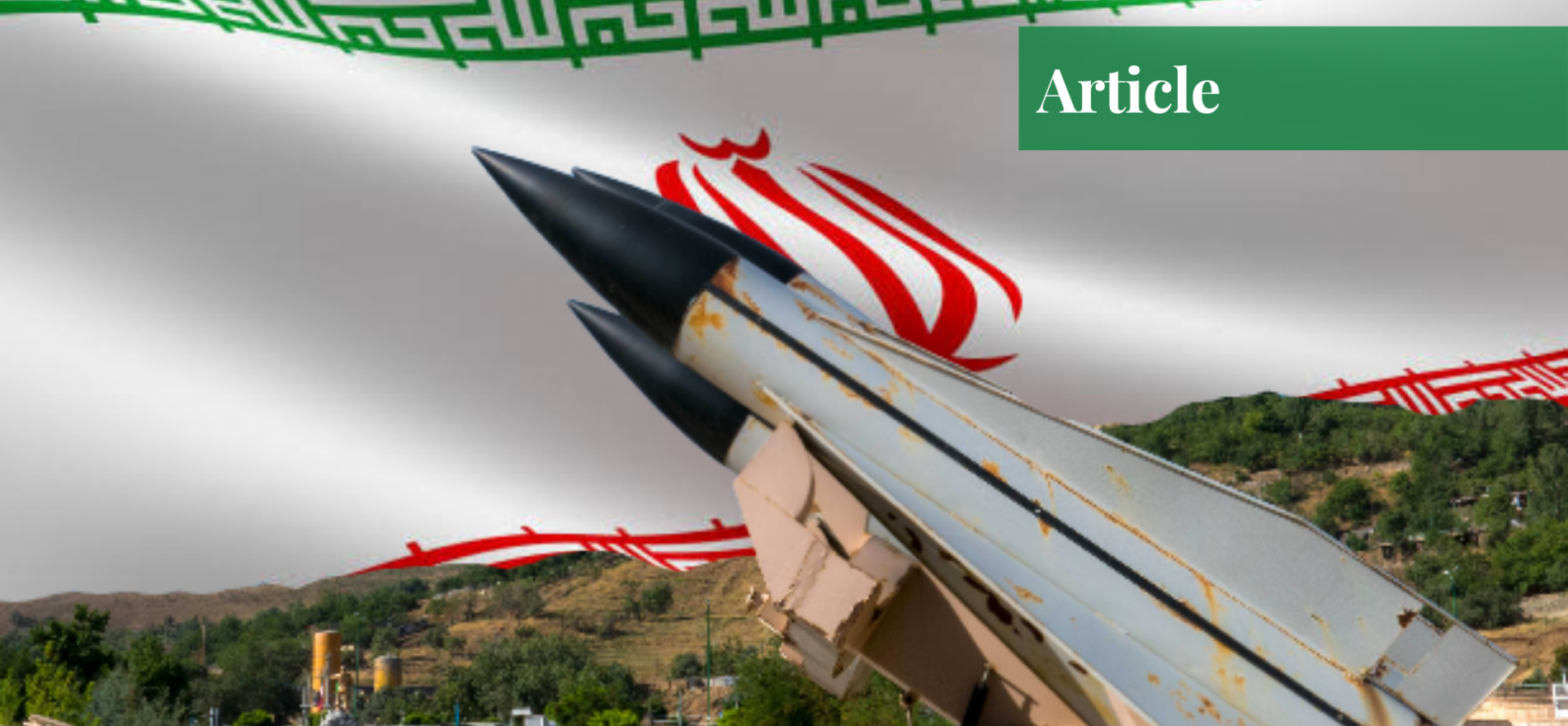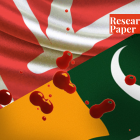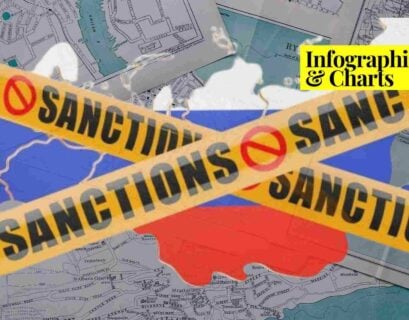Muzamil is a freelance writer with an expertise in global politics and international relations. He currently also works as a writer/contributor for Paradigm Shift. Apart from that, he loves to read and is socially active in philanthropic activities.
Iran’s Nuclear Ambitions
Skepticism and paranoia against a threat from Iran, whether conventional or a nuclear program, have caused serious damage to the security calculus of Israel. The dangers of military conflict that Israel faces against Palestinians are not as grave as those it faces from Iran. The prospects of confrontation between Iran and Israel pose a direct threat to Israel’s very existence.
Following its ambitions, Iran has doubled its efforts in acquiring nuclear weapons for its security uplift in the region faced with multiple actors following their own set of vested interests. To this end, Israel has diverted both its attention and resources to derail those efforts that may weaponize and advance the Iranian nuclear program, both independently and with the support of its allies.
On Nov 27, 2020, Mohsen Fakhrizadeh, an erstwhile captain of the Iranian nuclear weapons program, was assassinated while driving in Absard, a city almost 80 km east of Tehran, by forces unknown to the naked eye. Recent reports suggest that a remote-controlled machine gun was installed somewhere at a distance from where the shots were fired coupled with such precision and accuracy that his wife, who was sitting almost 25 centimeters away from him, was not seriously injured.
Other reports claim that the assassins were men who escaped after pulling a successful kill. Mohsen Fakhrizadeh, a physics professor by profession, was heading Project AMAD, a clandestine project of Iran directed to pursue nuclear weapons since the 1980s. His research to keep nuclear prospects alive in the wake of criticism from international powers, primarily the signatories of JCPOA, led to his dismissal.
Israel’s Countermeasures
Israel’s intelligence agency, Mossad, getting hands on these research documents suggests that Israel is actively trying to sabotage Iran’s pursuit of its nuclear program. The documents suggested that 70% of Fakhrizadeh staff remained with him in the new organization – Modern Defensive Readiness and Technology Center – even when the JCPOA deal was in-effect.
Two years ago, in 2018, Benyamin Netanyahu, Israeli Prime Minister, boasted about his significant progress, especially in stealing troves of documents from Tehran through Israeli spies. While presenting these documents publicly, he warned about Mohsen Fakhrizadeh; he was a target ever since, but not the only target.
The killing spree of nuclear scientists by Israeli forces has taken the lives of many understrappers of Fakhrizadeh from 2007 to 2012, in a similar fashion as was applied to him. It appears that the primary motive behind the killing of Mr. Fakhrizadeh was to give a deep setback to Iran’s nuclear project by executing its top senior and most expert nuclear manager.
The implied agenda behind this killing was to send a clear message to Joe Biden, U.S. President-elect, that his administration needs to kill a soft tone towards Iran, as Biden’s efforts to revitalize the nuclear deal of 2015 with Iran is viewed as a threat through Israel’s lens.
The Joint Comprehensive Plan of Action
In 2015, the Joint Comprehensive Plan of Action (JCPOA) was a deal struck under Obama-administration with Iran, in concurrence with other European powers, to curb the Iranian nuclear program alongside the demand for its rigorous inspections on its uranium enrichment in order to return towards lifting economic sanctions from Iran.
The deal went south under President Donald Trump’s “rogue” administration who pulled the U.S. out of this deal in June 2018, and lashed out at Iran by imposing economic sanctions unilaterally for its alleged continued efforts in procuring material for nuclear pileup.
Frustrated by the connivance of the Trump administration with Netanyahu’s government, Iran rebelled in 2019 by attacking Western allies in the region, especially the military attacks on Saudi Arabia. It has already violated the provisions set in the JCPOA deal, enriching uranium beyond what had been allowed.
Uranium Amplification
Under the deal, the cap was 3.67% of uranium enrichment, but Iran went up to 4.5%, which is more than 12 times the amount permitted, according to the International Atomic Energy Agency (IAEA), the nuclear watchdog of the UN. Iran is also reported to have acquired higher levels of purity in its nuclear material than allowed, apart from its research on advanced centrifuges coupled with hiding centrifuges in its underground facility.
Under the accord, Iran was constrained to keep its nuclear stockpile below the one-bomb threshold. For this, it had given up almost 97% of its pre-2015 stockpile levels. Though Iran never substantially interfered with inspectors from IAEA, it clearly showed defiance to the JCPOA deal.
The Role of the United States
Major excitement seeped through Iranian strongholds when Joe Biden won the 2020 U.S. Presidential Elections on the hope that the new administration would open up prospects for lifting bans on Iran’s oil sales and trade, rejuvenating its depressed economy induced due to the coercive economic sanctions of Trump and the recent COVID-19 pandemic.
Protests were in order, but it never caused any currents for the regime change in Iran as hoped by Trump and its Israeli counterpart. To aggravate its economic performance, Israel and its allies have effectively damaged Iran’s security apparatus by an array of explosions at key sites inside Iran last summer. Mystery encompassed the fire that broke out at one of the nuclear facilities which harbored nuclear material.
Cited as a cyber-attack, it effectively harmed nuclear centrifuges that were being developed at this Iranian facility. Similarly, a gas leak at one of the chemical plants and explosions at some of the power plants near military sites inside Iran, are some of the sabotaging maneuvers conducted by Israel. This is not the first time that Israel has used cyberwarfare against Iran.
During the Obama Administration, Israel collaborated with the U.S. to attack Iran’s nuclear centrifuges through a landmark cyber-attack, known as Stuxnet. That did not stop Iran from exercising its “maximum restraint” campaign against Trump’s “maximum pressure” doctrine.
For Iran, there will be a small window of opportunity between Biden’s assuming office on 20th January and Iran’s presidential elections on June 18th 2021; though hardliners in Iran have already won parliamentary elections in February. They fear that restoration of the nuclear deal will set in dimensions that may favor pragmatists like Hassan Rouhani, but will not suffice in their campaign to receive reparations for American sanctions.
Iran’s Nuclear Proliferation
In the wake of Fakhrizadeh’s brutal killing, lawmakers passed a bill that allows the government to continue enriching uranium to near-weapons grade, that is, 20% uranium enrichment and, if need be, to oust the IAEA inspectors if the American side does not cut Iran some slack. Critics from the Unites States, Israel, and Arab states suggest three connotations of skepticism behind the 2015 nuclear deal.
Firstly, the termination of its sunset clauses that will entail the expiration of restrictions to advance nuclear centrifuges and ballistic missile imports and exports within the period of a decade. Secondly, advances in Iran’s nuclear prowess give Iran support to retaliate in an abrasive manner, the manifestation of which was displayed in January when Iran reciprocated against America’s assassination of Qassem Suleimani, head of Iran’s biggest military force, Islamic Revolutionary Guard Corps, with precise strikes on U.S. bases in Iraq.
Thirdly, Iran’s manipulative behavior to support illegitimate armed groups such as Hezbullah, an Iranian-backed Lebanese militia, which has perpetrated enough chaos and imposed costs on Israel and US-supported factions in Syria. On the part of Israel, there are apprehensions that knowingly or unknowingly, this multilateral nuclear deal has given Iran a framework and infrastructure to restart its nuclear program even without the leadership of scientists such as Mr. Fakhrizadeh.
Israel and the Arab States
Arab states are also cautious about Iran’s growing regional influence in Iraq, Syria, Yemen, and Lebanon through its backing up of the regional factions. The benign response that emerged out of the White House against attacks on Saudi oil facilities by Iranian drones vividly signaled the Arab states to shift their alignment towards Israel, instead of relying upon a world power that is already retreating from world affairs.
In this scenario, regional sheikhdoms turned towards establishing diplomatic ties with Israel. UAE in August, followed by Bahrain in September, tied their economic and diplomatic ends with Israel. A recent “secret” meeting between the de facto ruler of Saudi Kingdom, Muhammad bin Salman, with Benjamin Netanyahu in the presence of Mike Pompeo, the U.S. Secretary of State, seemed to be setting grounds of a last possible endeavor before the Trump administration leaves to crush any efforts that might lead to the revision of Iran’s nuclear deal.
In comparison to Israel’s technological and military prowess that had attracted the Arab States in establishing their ties with Israel, the Arab States have little to offer in return except allowing Israeli planes to fly over their territory and sharing intelligence with Israeli spies. In short term, Iran needs to reevaluate its options and must decide upon them to avenge the death of Mr. Fakhrizdeh.
In response to Suleimani’s death in January 2020, their retaliation against the U.S. did not really hurt the latter. Iran knows that striking Israel directly will elicit a harsh response from all the western and European states where Israel’s lobby is strong and that will only make things worse. So, an attack on Israel’s allies in the Gulf might send a message without provoking a direct war.
Hence, some Iranian officials advise restraining the counter-offensive measures in the hope of smoothing the path back to JCPOA. Either way, if saner minds from the incoming U.S. administration do not happen to influence the evolving tensions in the Middle East, things will certainly take an ugly turn.
If you want to submit your articles and/or research papers, please check the Submissions page.
The views and opinions expressed in this article/paper are the author’s own and do not necessarily reflect the editorial position of Paradigm Shift.



















